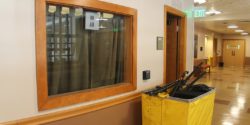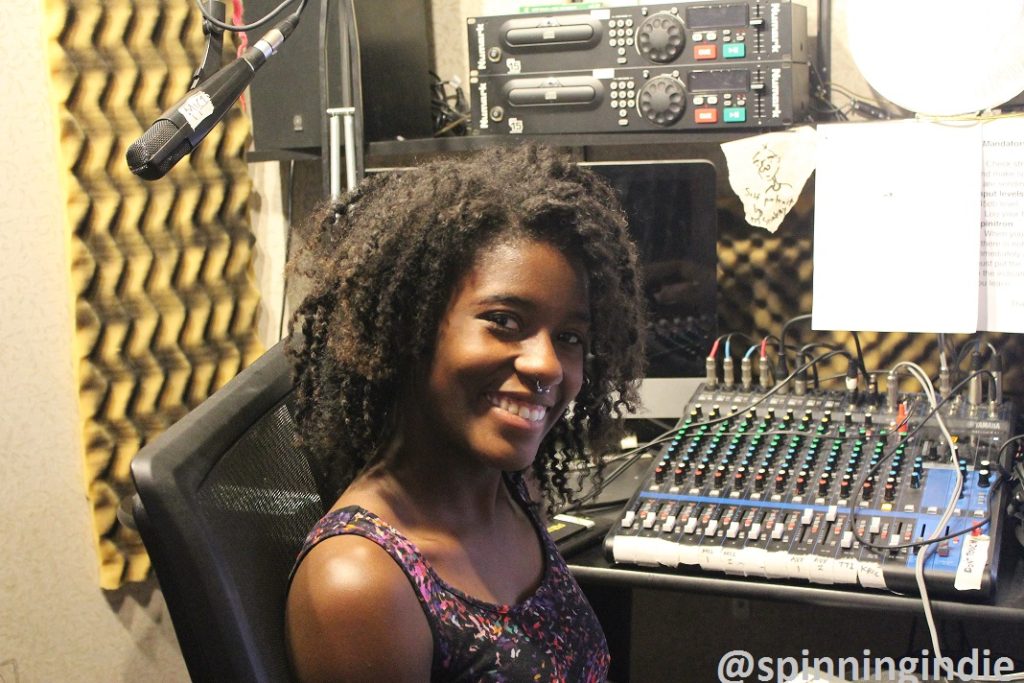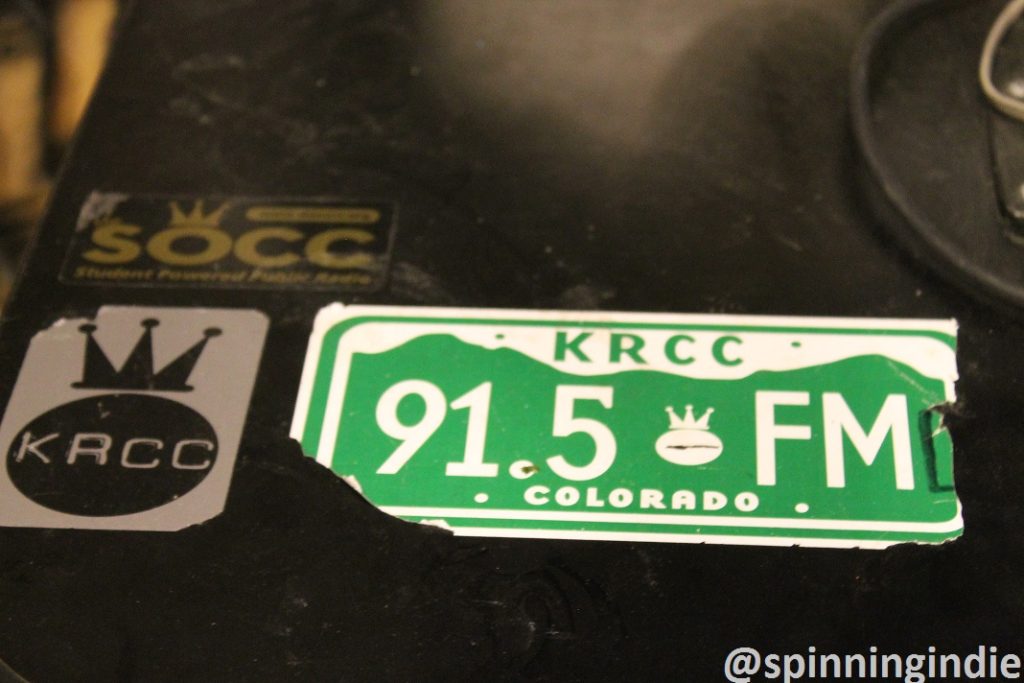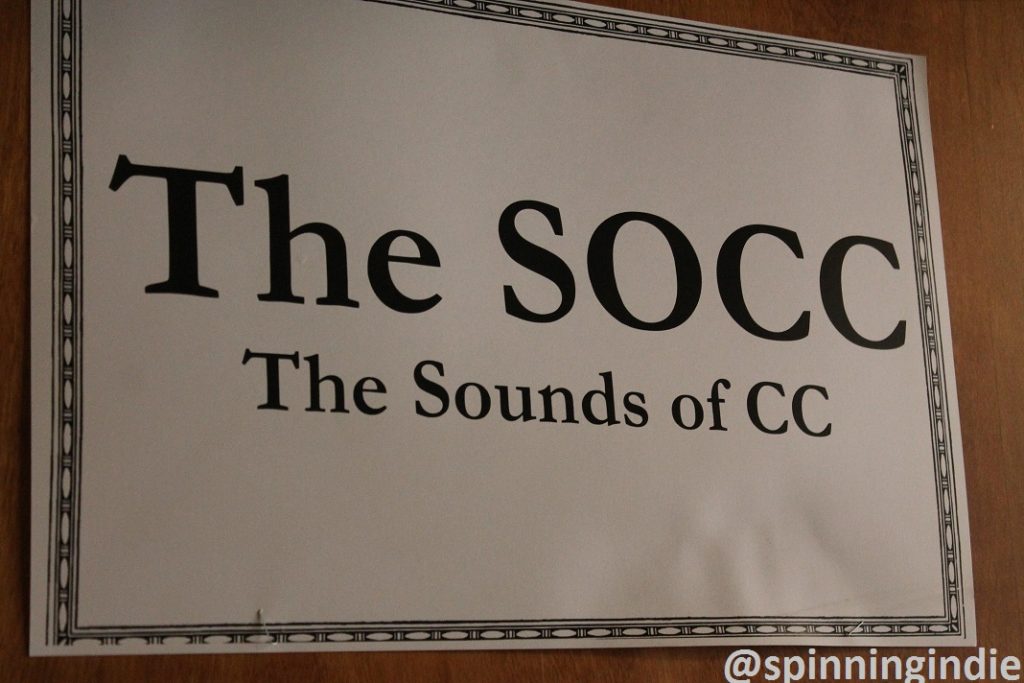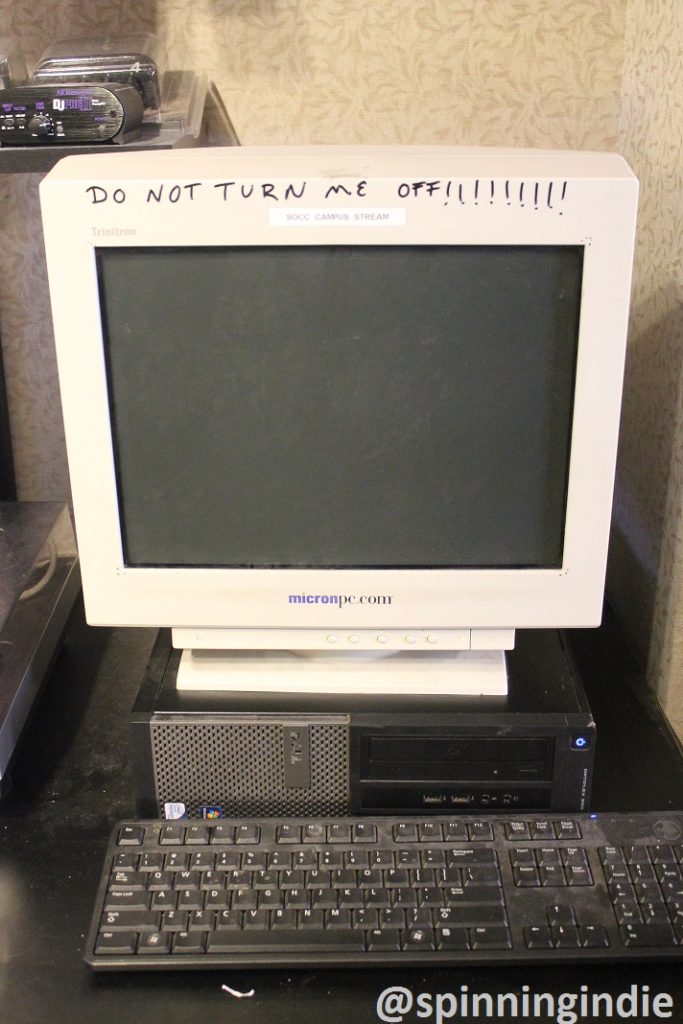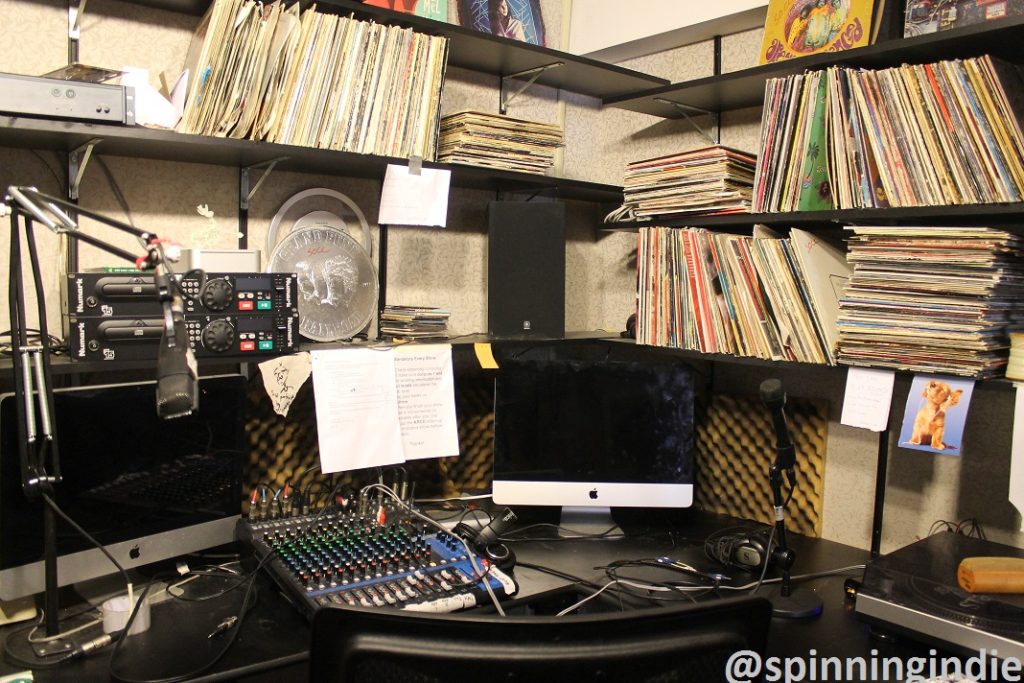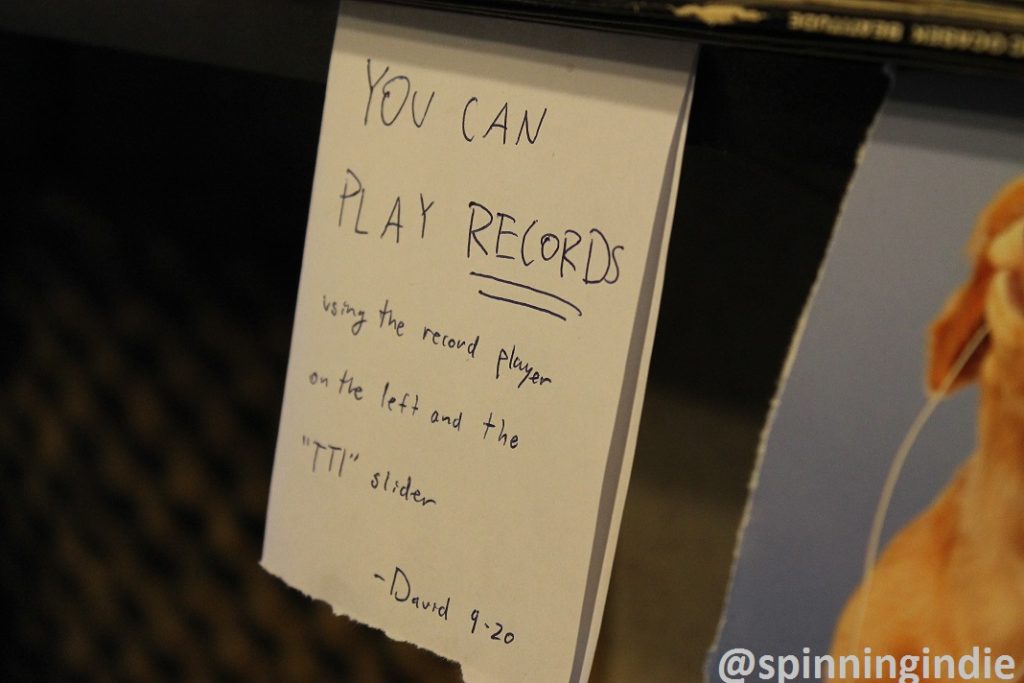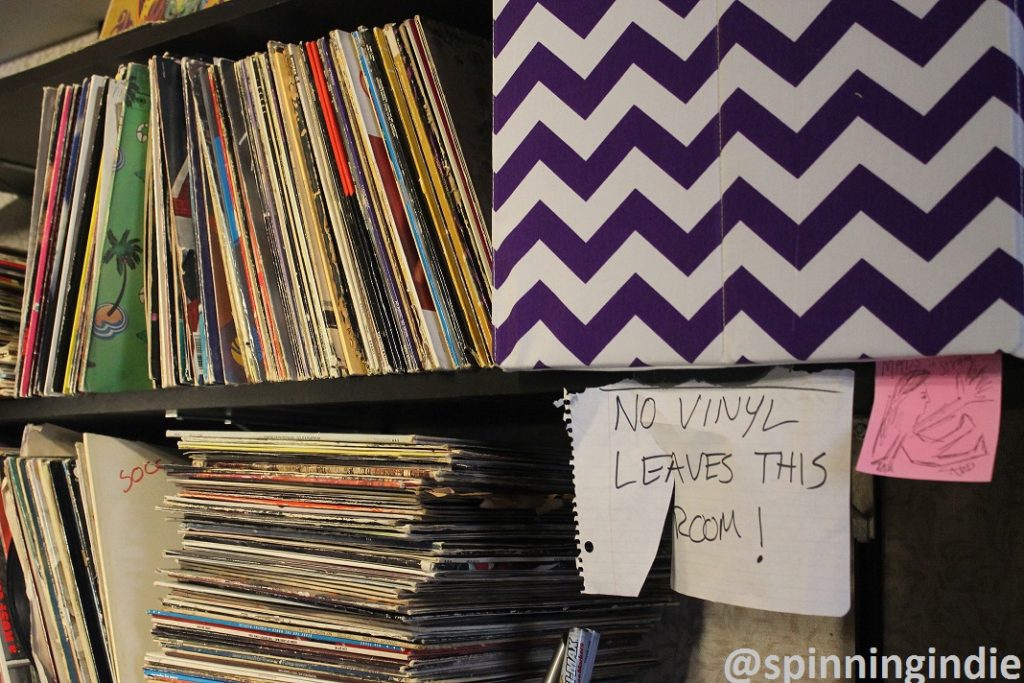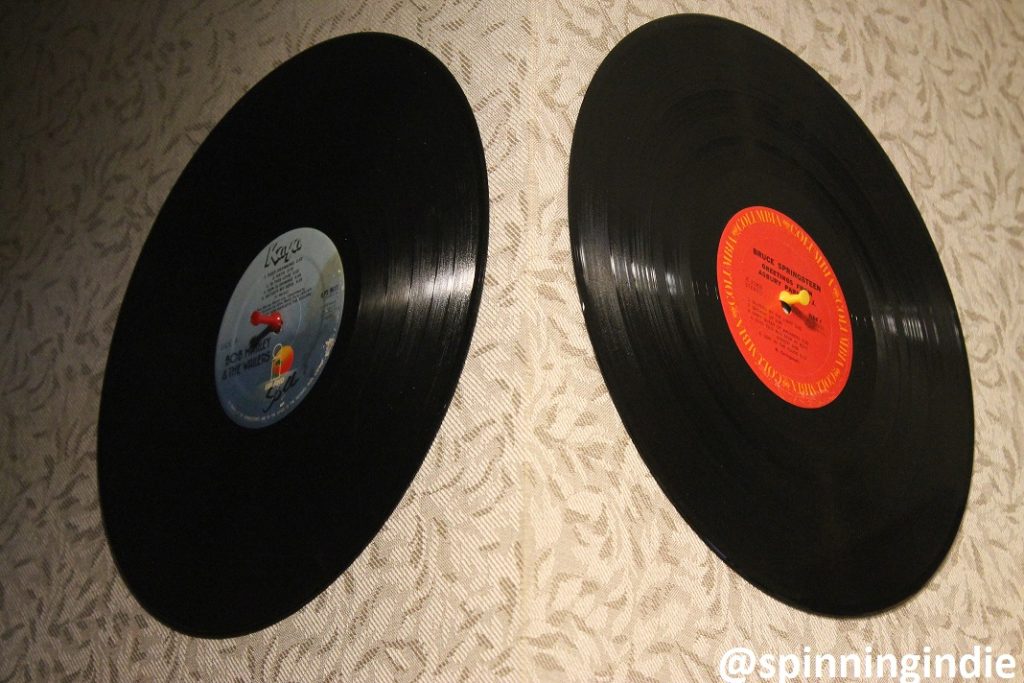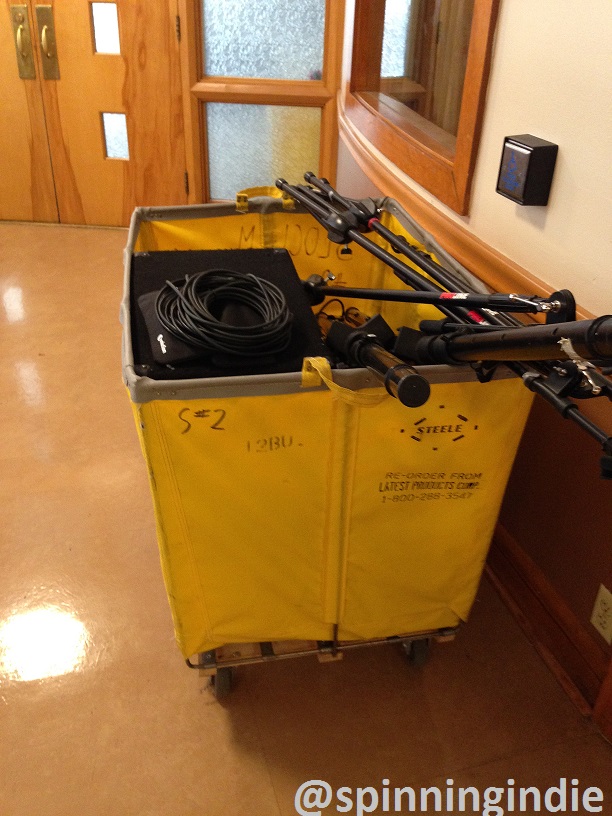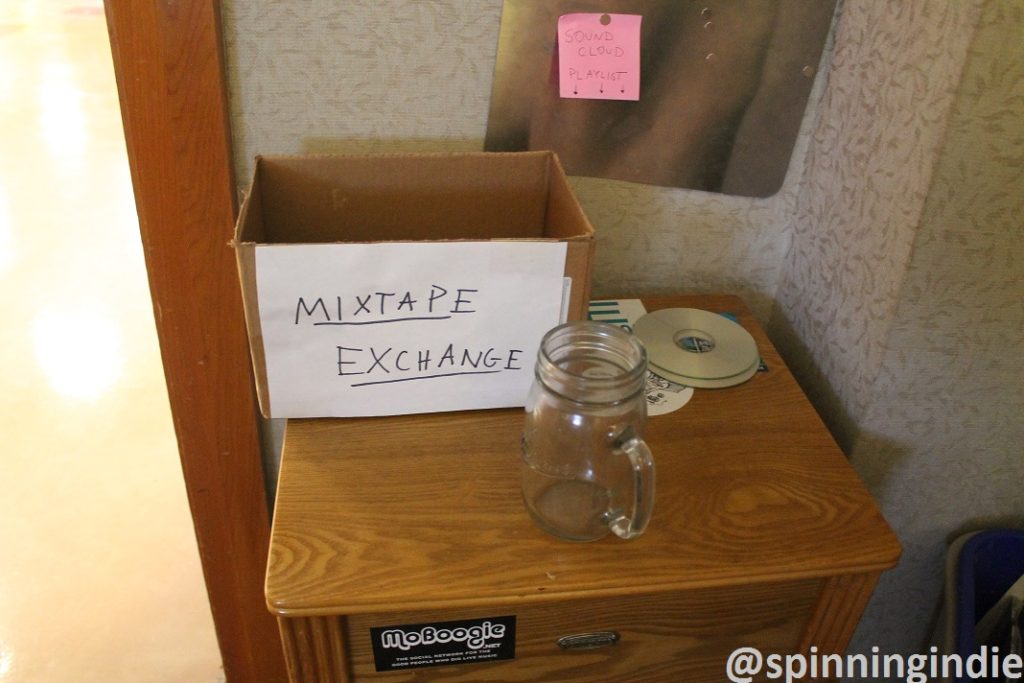On my final day of radio station tours in Colorado (July 13, 2016), I took a road trip from Denver south to Colorado Springs. My first stop was to Colorado College in order to see online-only college radio station The SOCC. General Manager Eboni Statham met up with me at the station, which is tucked into a corner off the entryway to one of the college’s dorms.
It turns out that Statham is the only station member around over the summer and she’s using the quiet time to work on some vital projects, including finding a new streaming service provider. Until very recently, The SOCC (it’s pronounced “the sock”) was hosted by Colorado College’s public radio station KRCC; but after some recent management changes and budget cuts, KRCC severed ties with the student-run The SOCC. So now, Statham is scrambling to find a new provider so that the station will be streaming once again in the fall.
The SOCC (it’s an acronym for The Sounds of Colorado College) was founded by students in 2008 and was originally housed in KRCC’s basement, which was fitting since KRCC was formerly a student radio station at Colorado College.
Back in 1944, radio had its humble beginnings at Colorado College as an outgrowth of the Radio and Drama Program. At the time students used a public address system to share their broadcasts and by 1946 it operated as a carrier current station. An FM license was secured in 1951 and it operated in tandem with academic programs until 1968, when it became an extra-curricular student radio station. Starting in 1978, non-students were able to participate in KRCC-FM and by 1984 the station became an NPR affiliate. Today, KRCC is professionally-run and has minimal student involvement, although it did initially house and provide streaming and an HD-3 signal for The SOCC.
Students still have some opportunities to participate in KRCC and Statham told me that there was a late night student radio show that ran on KRCC from midnight to 2am during this most recent academic year. Despite the recent changes, Statham was upbeat about the future of The SOCC, telling me, “I’m confident that it will work out.” Although she’d hoped to have the station streaming over the summer, it would have still been a very light schedule as there aren’t many students around. She mentioned that there are summer days when she might only see 3 people on the tiny four-block campus. During the school year the station is abuzz with activity, as there are around 100 student DJs; particularly impressive when you consider that Colorado College has less than 2,000 students.
Statham learned about college radio while going on campus visits during her college search. She told me that on a tour of Bowdoin College, she saw the radio station and thought, “wow, this is super cool.” Because of that seminal visit, she decided that she wanted to attend a school with a college radio station. She joined up with The SOCC within the first few weeks of arriving on campus her freshman year, and started out with an 11pm show during which she played hip hop, electronic, and R&B music. She reminisced about the show, telling me, “I loved it,” but also confessed that she was “nervous about talking” on the air. By sophomore year she was the station’s Events Manager and this year she’s the General Manager and will continue in that role during her senior year starting in the fall.
Live DJs tend to have shows on The SOCC from around noon until 10 or 11pm, largely because students typically are in class from 9am to noon. Most programs run for about an hour and some hosts participate in two or three different shows. Some of the most coveted show times are during mealtimes because the station gets played in two of the main dining halls on campus. Statham said that noon shows are popular because they are “really heard” by students eating lunch. She added that the dining hall broadcasts are also a great way for the station to get exposure on campus.
Although the station is freeform and “pretty much anything goes,” Statham acknowledged that DJs are asked to used more discretion during the times when the station is being played in the dining halls. Most of the programming is music-oriented, although there are also some talk shows and there have been a few sports broadcasts.
In addition to radio shows, The SOCC is also very involved with the music scene on campus. The station invested in music equipment and is able to not only host live shows, but also rent music equipment to campus groups. Statham told me that she’s also helped record campus artists and has arranged for campus bands to open for touring bands. Colorado College musicians range from “a few hip hop groups” to “a lot of rock” and “jam bands.” She added that Colorado Springs has a “pretty nice music scene” as well.
The station itself is a cozy room that is stocked with audio equipment, a computer, shelves full of LPs, and a small collection of CDs. A window (which was covered during our visit) faces out into the dorm entryway and a small couch provides seating for visitors. Most DJs play music from their own digital music files, although some also like to play vinyl, despite the fact that the station mostly gets sent CDs. One DJ, who is also a club DJ, even did an all-vinyl show. According to Statham, “Vinyls are still popular, but not really CDs.” She said that part of the challenge is that many new computers don’t even have the ability to play CDs. Despite that, the station has been doing a mix CD exchange; hearkening back to the CD mix-making days of many students’ childhoods.
Thanks so much to Eboni Statham for the tour and interview in the midst of a quiet summer at Colorado College. This is my 108th radio station field trip report, with more to come from Colorado and Southern California. See my most recent field trips on Radio Survivor and see a full list of my station tour reports on Spinning Indie. September 13 Update: Hear more about my tour of the SOCC on Radio Survivor Podcast #63, which also includes audio clips from my interview with Statham.

